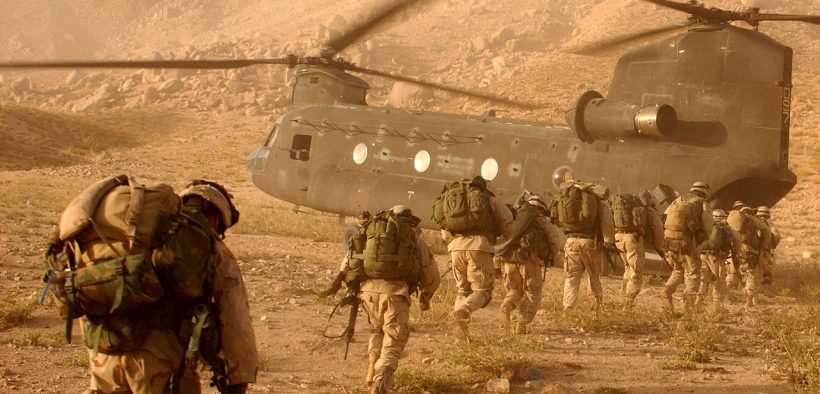Taliban Attack In Kabul Complicates US Plans for Afghanistan War

“We have lost too many of our men and women, and the poor Afghan people have lost even more.”
A Taliban attack near a school in Kabul on Monday killed at least 39 people and hospitalized 116 with serious injuries. The State Department condemned the violence against civilians as “particularly barbarous,” prompting questions as to how ongoing Taliban brutality will effect U.S. peace negotiations with the group currently underway in Doha.
“This brazen attack demonstrates the Taliban’s callous disregard for their fellow Afghans, who have repeatedly voiced the urgency of finding a peaceful resolution to the conflict,” the Trump administration said in a statement Monday night.
“Not only the United States but the entire world is condemning it, obviously it will have its repercussions on the results of the ongoing talks,” said Afghan President Ashraf Ghani’s spokesman in a statement.
However, according to the New York Times, officials were conspicuously quiet about the attack during following days of negotiation, in “a possible sign of just how keen negotiators have become to seal a deal that would set a timeline for an American troop withdrawal in exchange for a Taliban promise not to let terrorists operate from Afghanistan.”
But while President Trump has frequently expressed his desire to get out of Afghanistan, in a Monday interview with Tucker Carlson he said he was worried the country has become “the Harvard of terrorists.” Trump said his solution was to “leave very strong intelligence there,” and not withdraw all American troops from the country, complicating peace talks in Doha where negotiators are working towards a full pull out.
The lack of a clear purpose and strategy for the war in Afghanistan is what has prolonged it for 18 years, according to war correspondent C.J. Chivers, who told NPR that, “it doesn’t feel to many of the veterans that I commune with regularly that we actually have a national strategy for this that we can articulate or a vision for where we’re going.”
Daniel Bolger, a retired Army three-star general who served in Afghanistan, told Vox the US should leave the country.
“We have lost too many of our men and women, and the poor Afghan people have lost even more,” said Bolger. “This thing has dragged on way too long with no end in sight. The Afghans kill each other. It’s tragic, but it’s not our war.”
Afghanistan and 2020 Election
Public debate and media attention on the situation in Afghanistan has been largely absent, with a notable exception in the 2020 presidential debates between Rep. Tim Ryan (D-OH) and Rep. Tulsi Gabbard (D-HI) over U.S. policy in the country, which the next president will inherit:
Ryan: “I don’t want to be engaged. I wish we were spending all this money in places that I’ve represented that have been forgotten and we were rebuilding. But the reality is if the United States is not engaged, the Taliban will grow.”
Gabbard: “The Taliban was there long before we came in; they’ll be there long before we leave. We cannot keep U.S. troops deployed to Afghanistan thinking that we’re somehow going to squash this Taliban.”
Ryan: “I didn’t say squash them. When we weren’t in there, they started flying planes into our buildings.”
Gabbard: “The Taliban didn’t attack us on 9/11; al-Qaeda did. … That’s why I and so many other people joined the military — to go after al-Qaeda. Not the Taliban.”
Gabbard, an Iraq War veteran and noninterventionist, argues U.S. involvement in Afghanistan has failed to improve the country and exceeded its originally stated mission, while taking tremendous costs in human lives and money.
Chivers, a Pulitzer-Prize winning reporter and former marine, said in Afghanistan “the scale of waste is immeasurable,” as the infrastructure and U.S.-supported government that America spent “hundreds of billions of dollars to build and support are fragile and willing to align with Washington’s competitors or foes.”
Chivers warned that until the American public becomes more aware of the consequences of U.S. foreign policy, the 18-year long conflict will likely drag on:
“As long as we don’t have a draft, as long as we don’t have American households hooked up to the blood lottery that is war where any parent might have to worry about their child being called off to serve, I think that we will have a Pentagon that’s not quite fully supervised because the public doesn’t really feel a stake here. And until the country invests more fully intellectually in the war, I think that we’re bound to keep having conversations like this year after year,” Chivers told NPR.















